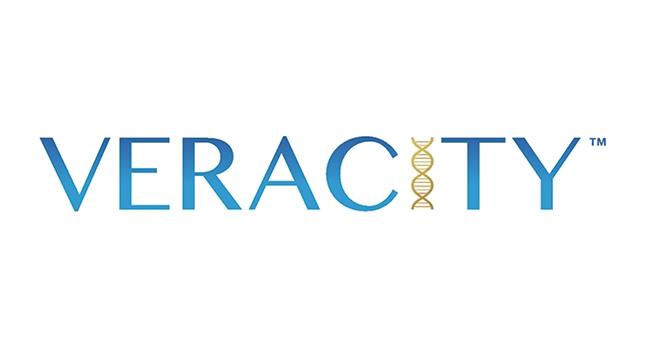As non-invasive prenatal aneuploidy testing gains popularity among doctors and patients, the field of providers keeps growing. One of the latest entrants is NIPD Genetics of Cyprus, which launched its Veracity test in June.
According to Genome Web, veracity, which is based on a proprietary targeted sequencing and analysis approach and is currently performed in NIPD Genetics' laboratory in Nicosia, screens for trisomies 21, 18, and 13 and determines fetal sex. The test can be administered from week 10 of gestation, has an average turnaround time of seven business days, and is competitively priced, with cost varying between countries, according to CEO and former Health Minister of Cyprus Philippos Patsalis.
The test is competing with a large number of providers that use technology developed by companies such as Sequenom, Natera and others. "We are going to compete based on the fact that we have a very competitive test with technological advantages," Patsalis said. "That will give us the capability to grow and gain a good position in the market."
NIPD Genetics, which currently has 34 employees, has raised approximately $5 million to date from institutional and private investors in Cyprus, Greece, the UK, and the US — including the Cyprus Institute of Neurology and Genetics — and plans to raise an undisclosed amount of additional funding to support its growth and development of additional tests. It has also won several research grants for technology development, mainly from the European Union.
Veracity, the company's first commercial test, employs a targeted deep sequencing and analysis strategy that was developed and patented by NIPD Genetics and is different from the approaches of other companies, Patsalis said. It involves analysing unique regions on chromosomes 21, 13, 18 and Y, called targeted capture sequences, or tacs, which were selected based on the absence of copy number variations and complex genomic elements.
Further, the company is able to estimate fetal DNA fraction very accurately, which he said enhances the test's overall accuracy and the current targeted sequencing methodology enables both high accuracy and low production costs.
The studies conducted will be submitted for publication in peer-reviewed journals and Patsalis is scheduled to present the results at Cambridge Healthech Institute's Advances in Prenatal Molecular Diagnostics conference in Boston next week.
NIPD Genetics has been offering Veracity since June and has received samples from several countries already. The test is currently available mainly in Europe, as well as in the Middle East. "We are going to expand to all the major regions, like all the other companies," Patsalis said. "It's our plan to expand and sell everywhere, basically." Longer term, the company also wants to transfer its test or underlying technology to other laboratories.
One competitive advantage, he said, is the company's location, with Cyprus being "at the crossroads of three continents: Europe, Asia, and Africa."
And while the test was validated in a high-risk pregnancy population, it is not restricted to that group. "It's a test that potentially can be used by any pregnant woman at any age after the 10th week of gestation," Patsalis said.
Health insurance in most countries currently does not provide reimbursement for NIPT, but he said he expects that "slowly but surely it will become part of many healthcare systems."
In the meantime, NIPD Genetics is working on new genetic tests that will focus on rare syndromes, single-gene disorders, and transplantation genetics, which it plans to launch in 2016 and 2017.
According to Genome Web, veracity, which is based on a proprietary targeted sequencing and analysis approach and is currently performed in NIPD Genetics' laboratory in Nicosia, screens for trisomies 21, 18, and 13 and determines fetal sex. The test can be administered from week 10 of gestation, has an average turnaround time of seven business days, and is competitively priced, with cost varying between countries, according to CEO and former Health Minister of Cyprus Philippos Patsalis.
The test is competing with a large number of providers that use technology developed by companies such as Sequenom, Natera and others. "We are going to compete based on the fact that we have a very competitive test with technological advantages," Patsalis said. "That will give us the capability to grow and gain a good position in the market."
NIPD Genetics, which currently has 34 employees, has raised approximately $5 million to date from institutional and private investors in Cyprus, Greece, the UK, and the US — including the Cyprus Institute of Neurology and Genetics — and plans to raise an undisclosed amount of additional funding to support its growth and development of additional tests. It has also won several research grants for technology development, mainly from the European Union.
Veracity, the company's first commercial test, employs a targeted deep sequencing and analysis strategy that was developed and patented by NIPD Genetics and is different from the approaches of other companies, Patsalis said. It involves analysing unique regions on chromosomes 21, 13, 18 and Y, called targeted capture sequences, or tacs, which were selected based on the absence of copy number variations and complex genomic elements.
Further, the company is able to estimate fetal DNA fraction very accurately, which he said enhances the test's overall accuracy and the current targeted sequencing methodology enables both high accuracy and low production costs.
The studies conducted will be submitted for publication in peer-reviewed journals and Patsalis is scheduled to present the results at Cambridge Healthech Institute's Advances in Prenatal Molecular Diagnostics conference in Boston next week.
NIPD Genetics has been offering Veracity since June and has received samples from several countries already. The test is currently available mainly in Europe, as well as in the Middle East. "We are going to expand to all the major regions, like all the other companies," Patsalis said. "It's our plan to expand and sell everywhere, basically." Longer term, the company also wants to transfer its test or underlying technology to other laboratories.
One competitive advantage, he said, is the company's location, with Cyprus being "at the crossroads of three continents: Europe, Asia, and Africa."
And while the test was validated in a high-risk pregnancy population, it is not restricted to that group. "It's a test that potentially can be used by any pregnant woman at any age after the 10th week of gestation," Patsalis said.
Health insurance in most countries currently does not provide reimbursement for NIPT, but he said he expects that "slowly but surely it will become part of many healthcare systems."
In the meantime, NIPD Genetics is working on new genetic tests that will focus on rare syndromes, single-gene disorders, and transplantation genetics, which it plans to launch in 2016 and 2017.









